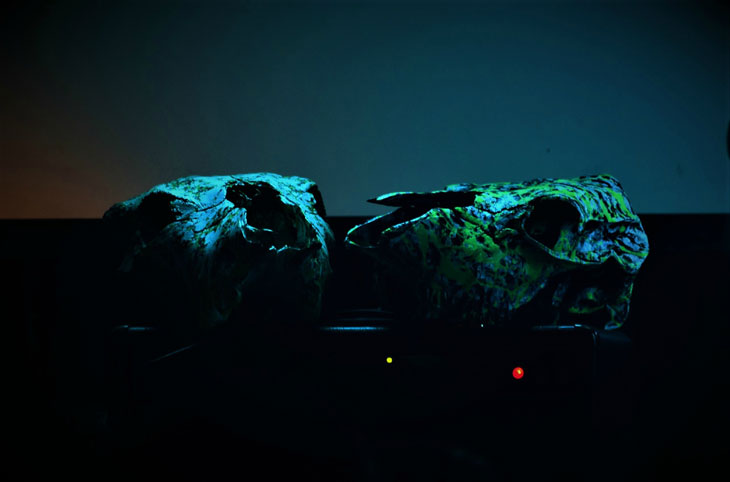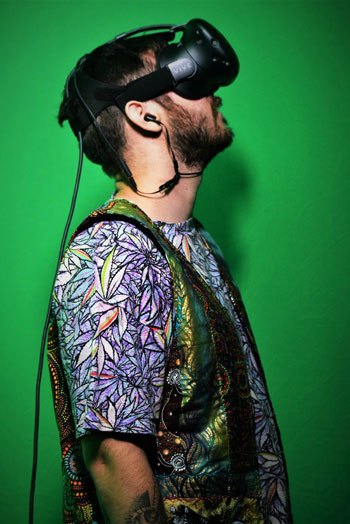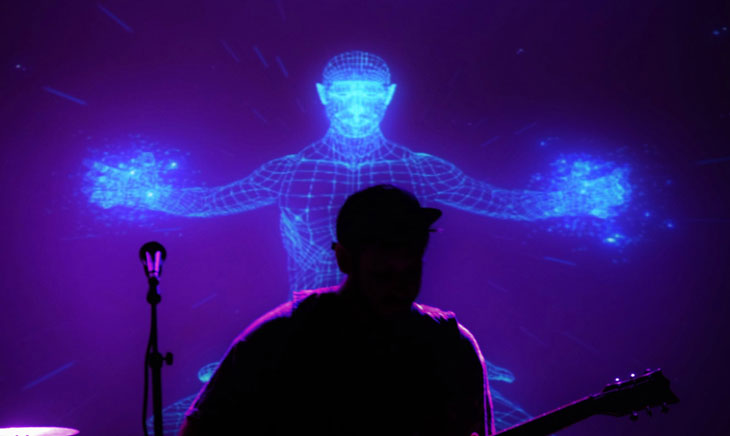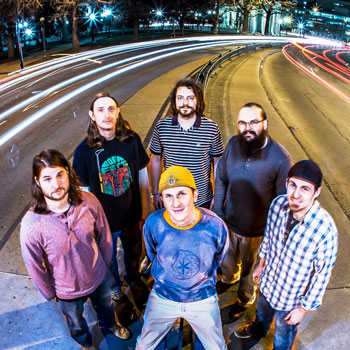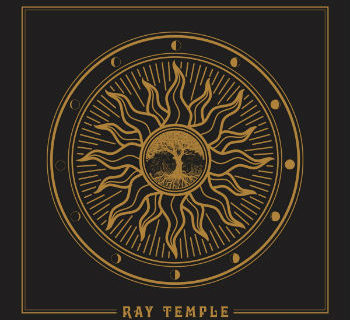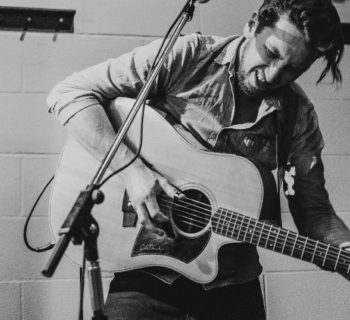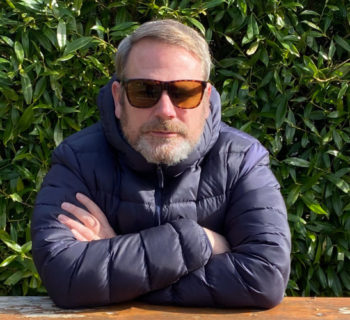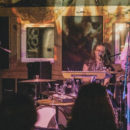Mountainwolf Aims Psychic Powers into New Album
Few fingertips are more calloused than those on the playing hands of Annapolis, Maryland rockers Mountainwolf. Often billed as “psychedelic doom” or “stoner rock,” these three blue-collar guys are working hard to dispel the preconceptions of those labels and lay out a grand vision that rises above genre to nothing short of melding worlds. With their sophomore album, Absinthe Moon, released in September 2017, they’ve even sought the psychic power of early 20th-century American mystic, Edgar Cayce.
Mountainwolf is three friends who've know each other since middle school: Tyler Vaillant on guitar and vocals, Chris Gipple on bass, and Thomas Coster on drums. Over the years they've formed, abandoned, and reformed bands with various folks until finally settling on their current line-up, just before recording their first record Silk Road in 2015. The album achieved notoriety when it was featured on the YouTube channel Stoned Meadow of Doom, racking up 100,000 views and some enthusiastic praise. Stoned Meadow called it a “mind numbing, skull crushing debut”– high praise in the stoner rock scene.
With Absinthe Moon, the band aimed for something even more mind blowing: recording at the Association for Research and Enlightenment (A.R.E.). If that sounds like a psychic conference center, that's because it is, founded in 1931 by famed mystic and “sleeping prophet,” Edgar Cayce to pursue his explorations of the mind and spirit. In other words, it’s a mad place to record some fat drums.
The mental and spiritual space allowed Mountainwolf the total freedom to throw things together to see what sticks, just as they do on stage. Plus, “There's a story behind it,” Vaillant says, with clear headed honesty. “And we were going for that. We wanted a story behind the record.”
Sitting in a large green plot of land in Virginia Beach, A.R.E is a stark, square white building that looks very much like a research facility or publicly funded institute you’d find anywhere. The main building hosts the visitor center, conference rooms, and a library specialising in metaphysics and parapsychology. Although forced to close during the Great Depression, it was purchased by A.R.E. again in 1956 and reopened with the spa and wellness center.
For Mountainwolf, the time that they spent there was, obviously, both surreal and serene. In fact, the center does not have a recording studio, making Mountainwolf the first band to ever record there. “We were recording this heavy uncomfortable doom record in this spa, basically,” Vaillant remembers. But the Zen spirit flowed, thanks to the environment of crystals, lights, and plants inside, and a garden, stone labyrinth, and dolphin spirit statue named “Shanti,” just outside the window.
But making a record is damn hard work, and Mountainwolf had only three days to record ten songs. They settled down to long slogs of fifteen hours of hand-hurting, back-breaking effort, with some songs taking two or three hours a time. Vaillant admits that for a band that prefers a “stream of consciousness, improv jam,” playing the same song the same way twice or more presents obvious difficulties when it comes to recording. The band had to change their style and get some serious discipline to get these songs on to a record.
But the Zen spirit flowed, thanks to the environment of crystals, lights, and plants inside, and a garden, stone labyrinth, and dolphin spirit statue named “Shanti,” just outside the window.
“We've never played these songs with the sense of recording,” Vaillant says. “We’ve always played these songs live. So with the sense of recording them, we had to trim the fat, in a way.” That means none of the 15-minute jams of the live show. Thankfully, some of the necessary discipline was imposed by their producers, Matt Bittman and Justin Miller. Much like trainers at the gym, the duo pushed the band through take after take after take. If something wasn't right, the band had to start again from the top, no matter how much they were hurting.
But how do you record a song that, by your own admission, you've never played the same way twice? “A lot of counting,” Vaillant says, “And re-listening.”
But a place with so much psychic activity can present its own difficulties, too. “In the middle of recording, I stopped because I thought that I was hearing voices coming through my headphones,” Vaillant recalls. “I got pissed and I yelled in the microphone. I thought Lee was talking to me in the middle of a take. And he was like, ‘dude, I didn't say anything.’”
Thankfully, the love of making music and years of experience got them through the recordings and is pushing them forward. “I want to be the world's first doom jam band,” Vaillant says, with just a hint of a laugh. “I want to play a Bonnaroo and bring the big biker dudes with their leather jackets that are just driving down Route 66 listening to Black Sabbath, and then all of a sudden have all the kids that listen to Phish dancing. I want them dancing together at a festival. That’s the show that I want to play.”
Their manager, Alexis Jenkins, is aiming to get them into SXSW, but they're keen on any of the national or international festivals. “I want to bring that to people who have never seen us before. That's what the festival vibe is all about. Even if you're playing an early slot, you're playing at least a couple hundred people with no clue who the hell you are.”
Mountainwolf has also partnered with Haymaker Media to make a 360-degree virtual reality music video directed by JR Mitchell.
“It's pretty incredible, the stuff we're planning,” says director JR Mitchell. “From live-keying and live painting in a VR world during shows, to involving the music video and live streaming for fans around the world, all in VR. Mountainwolf is a great partner in creativity and a band that I think is going to make a huge mark on the musical landscape by pushing the boundaries of what you can expect from an artist. And they kick fucking ass too.”
With the new video and the upcoming release of Absinthe Moon, Mountainwolf has a lot to look forward to. But even Edgar Cayce wouldn't be able to predict what's going to happen next. What’s clear for Valliant is that they'll keep playing, writing, and jamming.
“I found out a young age what my purpose on this planet was and that was to play music, no matter how good or bad I am at it," he says. "I'm going to write songs and play music.”

